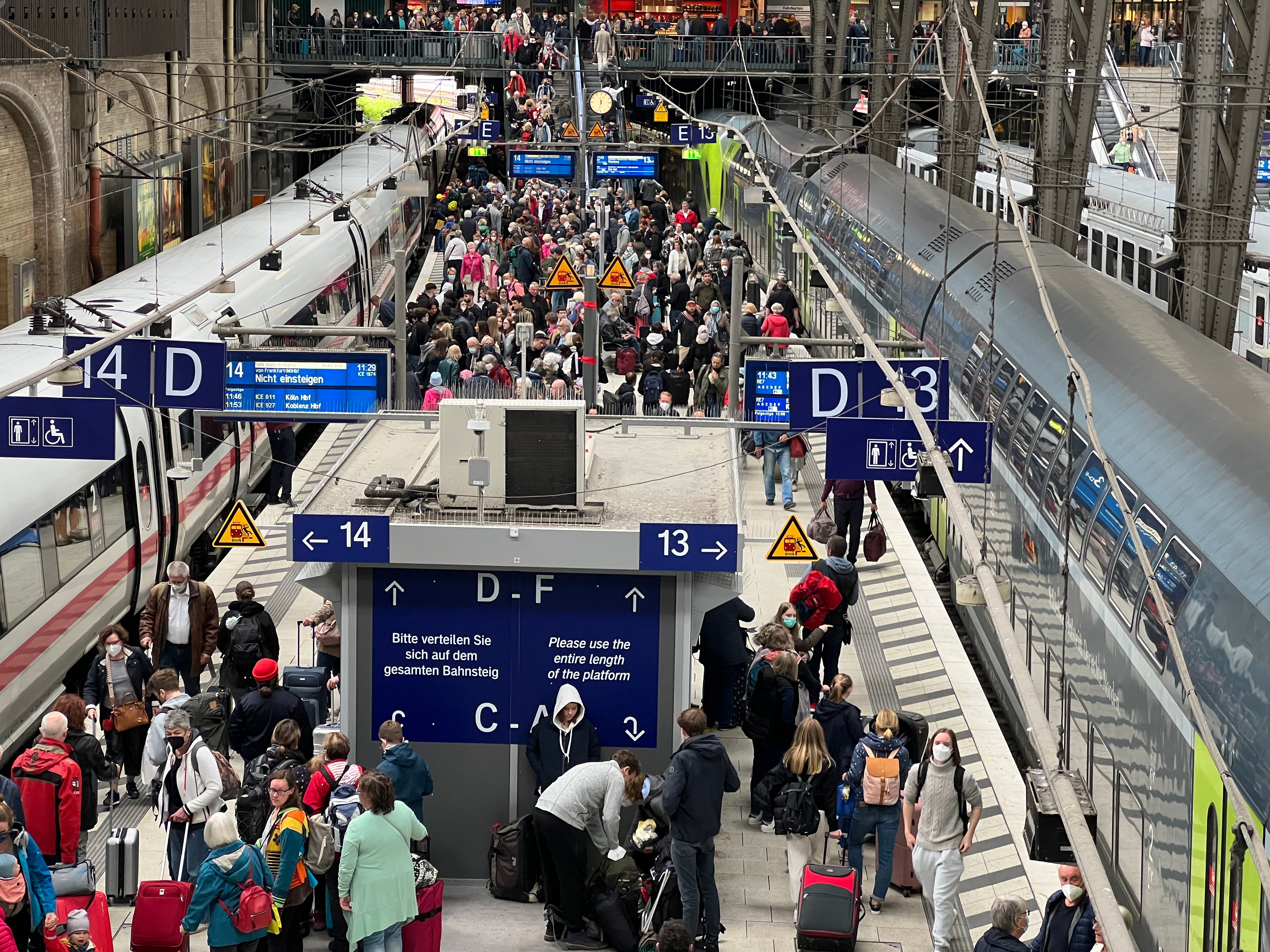How bad has German Rail become? Rail guru warns against planning swift connections
Exclusive: ‘Everyone in Germany treats delays as the norm’ says one passenger, while others believe overcrowding is the biggest problem

Your support helps us to tell the story
From reproductive rights to climate change to Big Tech, The Independent is on the ground when the story is developing. Whether it's investigating the financials of Elon Musk's pro-Trump PAC or producing our latest documentary, 'The A Word', which shines a light on the American women fighting for reproductive rights, we know how important it is to parse out the facts from the messaging.
At such a critical moment in US history, we need reporters on the ground. Your donation allows us to keep sending journalists to speak to both sides of the story.
The Independent is trusted by Americans across the entire political spectrum. And unlike many other quality news outlets, we choose not to lock Americans out of our reporting and analysis with paywalls. We believe quality journalism should be available to everyone, paid for by those who can afford it.
Your support makes all the difference.On the eve of the closure for engineering work of one of Germany’s major rail lines, many travellers are reporting serious disruption on trains run by Deutsche Bahn (German Rail, DB).
“Everyone in Germany treats delays as the norm,” says one long-suffering passenger, Barry Freeman.
As soon as the Euro 2024 football tournament ended in July, the key Frankfurt to Mannheim corridor closed for six months for improvement work.
Now another important north-south line, between Karlsruhe and Freiburg in southwest Germany, is closing from 10 August for three weeks to add two extra tracks. Intercity trains will be diverted while local services will be replaced by buses.
But even without the latest shutdowns, rail passengers in Germany are encountering a wide range of problems this summer:
- Missed connections due to late-running trains
- Sudden cancellations or re-routings
- Inadequate or incoherent information
Now, a leading expert has warned against assuming standard train connection times will work.
During his latest trip across Germany, Mark Smith – known as The Man In Seat 61 – recommended allowing extra time to change trains when planning trips online because so many services run behind schedule.
“Always change ‘Transfer time’ from ‘normal’ to 45 minutes when using bahn.de,” he wrote on X.
One respondent said the state of the railways is the so bad that intercity passengers can save money on long journeys by going for the cheapest fare on a given day, on the basis that the connections are likely to be missed – allowing the traveller to board any other train.
“Await the magical Zugbindung aufgehoben [train connection cancelled] text to appear on your digital ticket and then take the train you actually wanted.”
Almost half of German long-distance trains were at least six minutes late at some point in their journey in June 2024.
Deutsche Bahn blames outdated track infrastructure, intensive engineering work and sheer traffic density at key hubs including Frankfurt, Cologne and Stuttgart.
Over recent weeks, the Berlin-based co-editor of Europe by Rail, Nicky Gardner, has criss-crossed Germany by train and has clearly fared better than some others. “Yes, some trains were late,” she says. “But nothing like the statistics might suggest.
“Most of the trains are making journeys which run to many hours. My own experience is that trains are indeed often late, but I’ve always got to where I wanted to go, albeit sometimes a little later than expected.
“The great thing about Germany is that on many domestic rail routes express trains run two or three times per hour, so if you miss a connection, there’s usually another train along very soon.
“Better to make a six-hour journey on a comfortable long-distance train, albeit with the risk of arriving late, than to have to ensure a long drive on Germany autobahns where even a good day that same journey may take eight hours, but all too often so much longer with traffic jams.”
Ms Gardner does have an issue about overcrowding, especially on regional trains due to a €49 per month flat-fare promotion allowing unlimited travel.
“Many regional trains are bursting at the seams,” she says. Figures show that only one in 10 regional trains is late. “That’s as may be,” says Ms Gardner, “but my partner and I have had instances where trains are so full, it’s impossible to squeeze aboard. So we end up just waiting for the next train. And that’s an irritant not captured in the punctuality stats.”
Barry Freeman, a British expatriate living in the Netherlands and a regular visitor to Germany, predicts: “Things won’t get better until 2030 at the earliest.”
Deutsche Bahn says: “In the past, funds for the rail network, service facilities and stations have not been sufficient to achieve a high level of performance and quality as traffic volume has increased.
“Together with the Federal Government, we will now be significantly increasing the funds for renewal and maintenance.”
The firm says it is deploying AI in a bid to make trains more punctual, and also using an autonomous machine named Spot the Robot Dog “to relieve our employees of physically strenuous work”.
Join our commenting forum
Join thought-provoking conversations, follow other Independent readers and see their replies
Comments